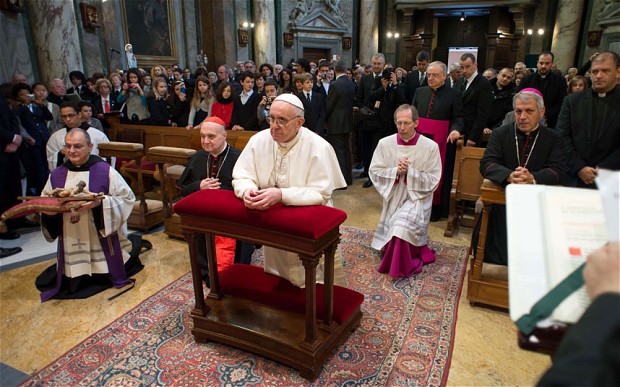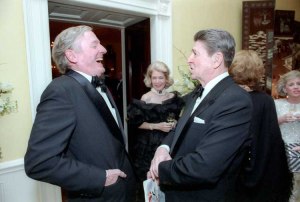If Pope Benedict XVI’s legacy can be summed up in one word, it would be ‘orthodoxy’. Etymologically, orthodoxy comes from the Greek root ortho and dox, meaning ‘correct belief’, and it is this message which Benedict delivered time and again in his numerous books, Sunday Angelus addresses, and speeches. Pope Francis, in his audience with the College of Cardinals on March 15th, stated, ‘The Petrine ministry, lived with total dedication, found in [Pope Benedict] a wise and humble exponent, his gaze always firmly on Christ, the risen Christ, present and alive in the Eucharist’. Benedict’s commitment to expounding the beautiful truths of the Catholic faith will undoubtedly leave a lasting impression upon our Church, and will be studied for generations to come.
Although we are only a few days into Pope Francis’s papacy, it is clear that the main emphasis has been placed on his humility and simplicity of lifestyle. Indeed, liberals within the Church are jubilant that the red shoes, fancy lace, and ermine trim are gone (I am looking at you, Cardinal Mahony); of course, this raises the question: who is the one really concerned about the ‘trappings’ of the Church? Hint: not the ones wearing the red shoes or fancy lace. Please see Gregorius’s post A Visible Head for more on this.
I therefore think that we can say that Pope Francis is beginning his legacy, building off of Benedict’s orthodoxy, by demonstrating Catholic orthopraxy. Orthopraxy comes from the Greek words ortho and praxis, which translate as ‘right practice’ respectively, and the Pope’s lifestyle as a cardinal and his first three homilies as Pope certainly point to an orthopraxic bent. For liberals, this should be a cause for concern (see Fr. Z’s blog on Jamie Mason’s horror). Like his papal predecessor, Pope Francis is a member of Communion and Liberation (CL), a movement begun by an Italian priest back in the 1950s to counter the rise of modernism. It is an inherently conservative movement, which is radical in its execution. Dario Zadra wrote in an essay on CL,
CL holds that the Church provides the principle of authority in society, the principle by which the moral quality of freedom is to be judged. Persons are only free as they live in connection with the central event of Christ; they are only individuals in so far as they live in a society with this even as its moral foundation.
From this postulate derives the determining role played by the principle of power in CL. Power is at once individual and social. Because the Church is the expression of the constitutive reality of the event of salvation in history [please see this article on this concept], the Church’s religious authority must define history and society. Because the individual’s life is to be oriented to that same reality, religious sensibilities have authority over reason or desire. Power is thus located in religious sensibilities and religious institutions, and religious authority holds together the vast range of action spawned by the movement. By claiming religious authority, CL also claims the power to reconstruct society on these premises.
Thus for CL, ‘authority’ is the very principle of orthodoxy. […] in CL the authoritative character of the event of salvation is directly translated into the authority of the Church [and is] expressed by the pope[…].
I could spend pages on liberal gripes about points made in each of the above paragraphs, but what is important to note is the complete investiture of power in the Church, specifically the Pope (this is completely anathema in liberal circles). Second, it is this same authority that gives rise to orthodoxy. What a lovely juxtaposition of Pope Benedict’s and Pope Francis’s papacies! Here we have Benedict laying the orthodox groundwork, and Francis is bringing it to fruition through his orthopraxy.
Whilst the liberals cheer on the sidelines for the time being, it is imperative to note that Francis’s actions are simply the consequence of a conservative crusade meant to center society entirely and radically on the Church.
– Vigilius



